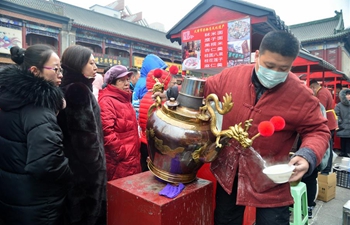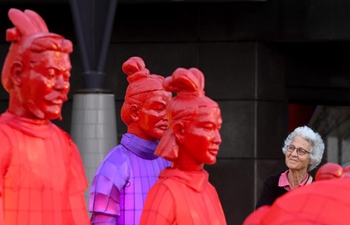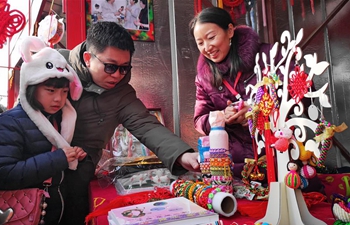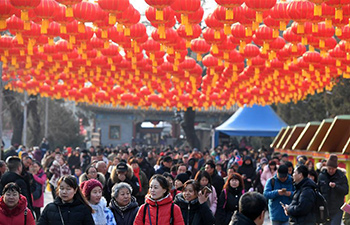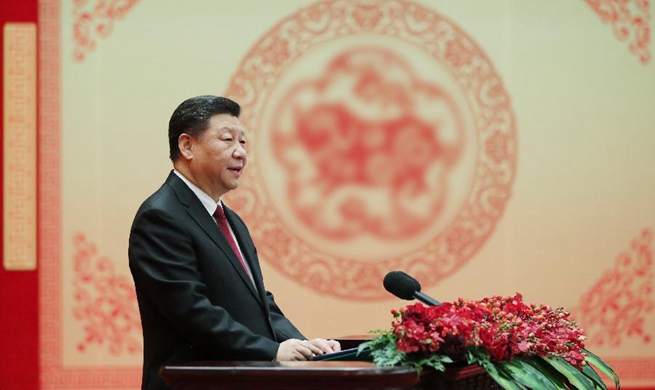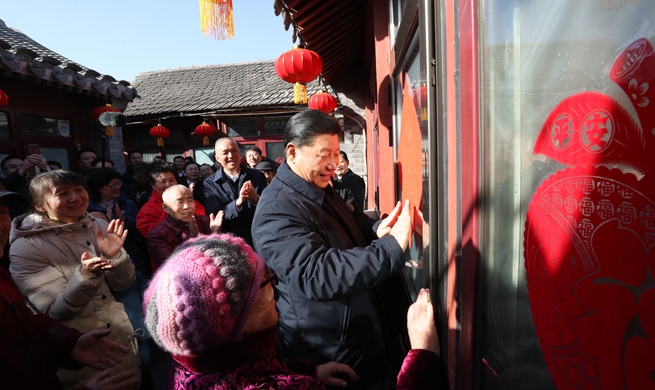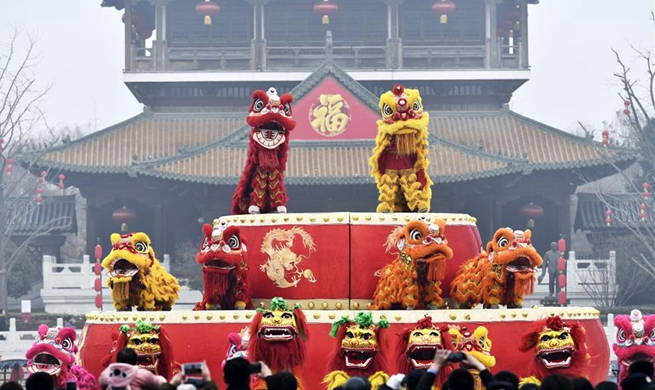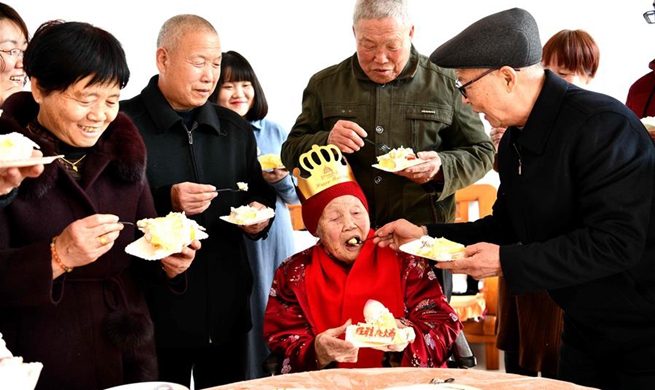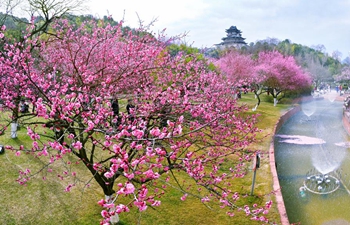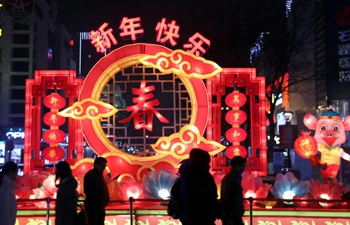by Xinhua writer Zhu Dongyang
WASHINGTON, Feb. 5 (Xinhua) -- U.S. President Donald Trump's Tuesday announcement of a second meeting with top leader of the Democratic People's Republic of Korea (DPRK), Kim Jong Un, renewed hopes among those having good intentions for the future of the Korean Peninsula.
In the annual State of the Union address, Trump's note on the meeting slated for Feb. 27-28 in Vietnam was reassuring.
Noting the bilateral "historic push for peace on the Korean Peninsula" as part of a "bold new diplomacy," Trump said his relationship with Kim is "good."
The planned second Kim-Trump meeting is the progeny of diplomatic nudges at the turn of 2018-19 from all relevant parties including not only Washington and Pyongyang, but also Beijing, Seoul and Moscow.
During his fourth visit to China in less than a year on Jan. 7-10, Kim spoke highly of China's important role in resolving the Korean Peninsula issue.
He said the DPRK highly and sincerely appreciates the Chinese efforts and pledged to make efforts for the second DPRK-U.S. summit to achieve results that will be welcomed by the international community.
Kim also said he hoped that relevant parties will attach importance to and positively respond to the DPRK's legitimate concerns, and jointly push for a comprehensive resolution of the Korean Peninsula issue.
Though faced with many challenges between Washington and Pyongyang, the second Kim-Trump meeting bears potential of producing more flexibility from all parties and major headway on key issues such as the roadmap for denuclearization and economic opportunities for Pyongyang.
After the twists and turns following the first Kim-Trump meeting that discouraged many, the two countries, with mediation by the international community, renewed their momentum for high-level talks, as U.S. Secretary of State Mike Pompeo visited Pyongyang in October and Kim reiterated his commitment to the denuclearization in his new year speech.
Those in Washington arguing for a continuous hardline policy towards Pyongyang should respect the DPRK's resolve to ensure its national security and to improve the people's livelihood, as Kim highlighted in the speech.
Such initiatives deserve a more constructive commitment to the DPRK from the other side of the Pacific Ocean.
Instead of depending solely on the DPRK's Asian neighbors to pay for denuclearization and promise its security, Washington bigwigs need to extend strategic good faith and practical offers to enhance Pyongyang's confidence for a nuclear-free future.
It is also worth mentioning that China, a steadfast supporter of the Peninsula's peace and stability, has always put political settlement above geopolitical calculation, as a nuclear-free and prosperous Peninsula has always been in line with China's key security interest.
Stagnation of negotiations between the United States and the DPRK benefits no one. As such, it is expected that Washington and Pyongyang shall take the opportunity of the positive momentum brought by the upcoming summit to promote mutual trust in a responsible manner for more substantial results.
